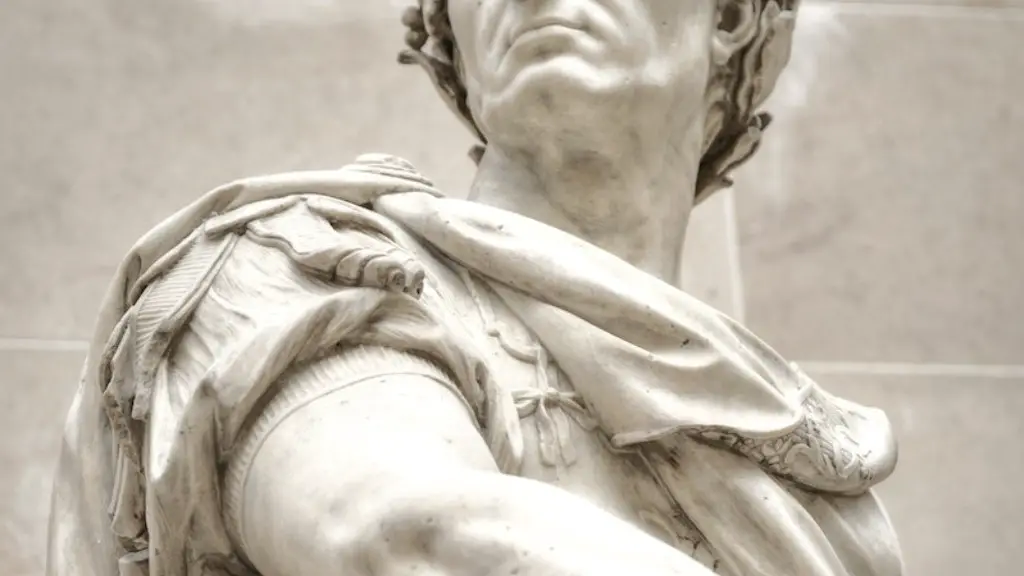The ancient Roman Empire was one of the most powerful empires in the world for centuries. During that time, the Romans influenced the development of monotheism in a few ways. First, the Romans conquered many lands and peoples, including the Jews. The Jews were a monotheistic people and their faith spread to the Romans. Second, the Romans were a very cosmopolitan people, and they came into contact with many different religions. They were open to new ideas, and this helped to spread monotheism. Finally, the Romans were very tolerant of different religions, and they allowed people to practice their own faith. This helped to create an atmosphere in which monotheism could flourish.
There is no one answer to this question as there is no one origin story of monotheism. However, some scholars believe that Ancient Rome played a significant role in the development of monotheism due to its vast empire and global reach. Ancient Rome’s empire extended throughout Europe, North Africa, and the Middle East, which meant that its people were exposed to a variety of religions. In addition, Ancient Rome was relatively tolerant of different religions, which may have allowed for the development and spread of monotheism.
How did Christianity reflect the development of monotheism in the Roman Empire?
The missionaries who spread Christianity throughout the Roman Empire did not have an easy time of it. For many years, the Roman emperors did not accept Christianity and persecuted those who followed it. Eventually, however, Christianity became the official religion of the Roman Empire, with the result that monotheism became widely practiced and replaced polytheism. This was a significant development in the history of Christianity, and it is one that continues to have an impact on the world today.
The Roman Empire was a primarily polytheistic civilization, which meant that people recognized and worshiped multiple gods and goddesses. Despite the presence of monotheistic religions within the empire, such as Judaism and early Christianity, Romans honored multiple deities. The most prominent gods in the Roman pantheon were Jupiter, Juno, and Minerva, who were worshiped as the highest deity in the state religion. Other popular gods included Mars, Apollo, and Venus. Religion played a significant role in Roman society, and temples were built throughout the empire to honor the Roman gods.
How did Rome change from polytheistic to monotheism
In 391 AD, Emperor Theodosius I declared Christianity as the official state religion of the Roman Empire. This marked a huge change as monotheism replaced polytheism and old traditions began to adapt to new beliefs. Christianity became the dominant religion of the empire and had a profound impact on Roman society.
Monotheism is the belief in one god. This belief began in ancient Israel with the adoption of Yahweh as the single object of worship. The rejection of the gods of other tribes and nations followed, without denying their existence. This belief has characterized Judaism since its inception.
Was the Roman Empire monotheism?
It is often said that ancient pagan religion was polytheistic, while monotheistic ideas were popular in ancient philosophy. This contradiction presents a challenge for our understanding of ancient pagan religion.
The change in policy by Constantine the Great in 313 CE led to a spread of Christianity throughout the Roman Empire. This new religion became the official state religion of the empire and its people. Christianity became a powerful force in the empire, shaping its culture and society.
What religion was most influenced by Rome?
The Etruscans were a major influence on Roman religion. They introduced the practice of divination by entrails, which the Romans continued. The Roman religious calendar was also borrowed from the Etruscans. Some specific gods in the Roman pantheon also came from the Etruscans, particularly Janus, a two-faced god of war.
The ancient Romans were a major force in shaping the world as we know it today. Their ideas and culture have influenced the art, architecture, science, technology, literature, language, and law of today. The Roman Empire was one of the largest empires in world history and their accomplishments are truly impressive.
What were three important influences on Roman religion
The three important influences on Roman religion were the Greeks or Etruscans, Latin tradition, and people they conquered. Roman religion was heavily influenced by the Greeks, who introduced many of their gods and beliefs to the Romans. Latin tradition also played a significant role in shaping Roman religion, as the Romans adopted many of the practices and beliefs of the people they conquered.
As different cultures settled in what would later become Italy, each brought their own gods and forms of worship. This made the religion of ancient Rome polytheistic, in that they worshipped many gods. They also worshipped spirits. Rivers, trees, fields and buildings each had their own spirit, or numen.
When did Rome begin following a monotheistic religion quizlet?
There are a few things to note about the history of Christianity. First, it is a monotheistic religion that dates back to around 2000 BCE. Second, Christianity was made legal in the Roman Empire in 313 CE. Finally, Christianity became the official religion of the empire in 380 CE.
The rise of Christianity in the Roman Empire is a fascinating story. It begins with a small group of followers of Jesus who were persecuted for their beliefs. However, the religion slowly began to grow in popularity. By the 4th century, Christianity had become the official religion of the empire. The major turning point for Christianity came in the form of a vision to the future unifier, Constantine. This event showed the growing power of the Christian church and set the stage for its future development.
Who developed monotheism
Akhenaten was an Egyptian pharaoh who established the first known monotheistic religion called Atenism. Atenism was rediscovered in the late 18th century and integrated by 19th and 20th century religious philosophers into the histories of the three Abrahamic religions.
Monotheist religions have produced a paradigm shift in sociopolitical institutions because they involve a strong degree of increasing returns to scale and the natural monopoly powers commensurate with it. Not only do they personalize the spiritual exchange relationship between the individual and the one deity, but they also increase the role of the priestly class in mediating that relationship. This has led to the development of new sociopolitical institutions that are more centralized and hierarchical in nature.
Who created the first monotheistic religion?
Zoroaster is an important figure in world history, as he is considered the founder of Zoroastrianism. This monotheistic faith is one of the oldest in the world, and has had a significant impact on other religions, including Christianity and Islam. Zoroaster’s teachings emphasized the importance of righteousness, morality, and doing good deeds. This is a message that is still relevant today, and one that we can all learn from.
Christianity is a religion that originated from Judaism and was later influenced by Roman culture and politics. For centuries, Christianity has been shaped by these two influences, which can be seen in the way that Christians practice their faith.
What empire is monotheism
After the fall of the Western Roman Empire, two great powers ruled in the East: the “Byzantine” Empire and the Islamic Caliphates. The governments and cultures of these empires were heavily intertwined with the ascendant monotheistic religions: Christianity and Islam.
The Byzantine Empire was a continuation of the Roman Empire in the East, and its government and culture were heavily influenced by Christianity. The Islamic Caliphates, on the other hand, were founded by Arab Muslims who conquered the Persian Sassanian Empire. The Caliphates were very different from the Byzantine Empire, but they too were greatly influenced by Islam.
Both the Byzantine Empire and the Islamic Caliphates were great powers in their own right, and their rivalry shaped the course of history in the East for centuries.
Post-exilic Judaism was the first religion to conceive of a personal monotheistic God within a monist context. This means that, after the Jews were exiled from their homeland in the late 6th century BCE, they began to think of God as a single, unified Being, as opposed to the multiple, fragmented deities of their polytheistic predecessors. This newfound conception of God was likely influenced by the monotheistic Persian religion, which the Jews encountered during their exile. Consequently, post-exilic Judaism represents a significant departure from traditional polytheism, and has served as a major source of inspiration for monotheistic religions such as Christianity and Islam.
Warp Up
It is believed that ancient Rome had a significant influence on the development of monotheism. The Roman Empire was one of the most powerful empires of its time, and its vast territory and resources allowed for the spread of Christianity throughout the world. The Roman Empire also helped to legitimize Christianity, as it was endorsed by the emperor Constantine.
The ancient Romans were polytheistic, believing in and worshiping multiple gods and goddess. However, they also influenced the development of monotheism, the belief in one God. The Roman Empire was one of the most powerful empires of all time, and as such, their religion and beliefs had a great impact on the development of monotheism. Christianity, the most prominent monotheistic religion, has its roots in the Roman Empire.





